Rays of light in the dark: How N.W.T. communities got through a year of COVID-19
With gatherings cancelled and travel discouraged, people are spending more time with family, out on the land
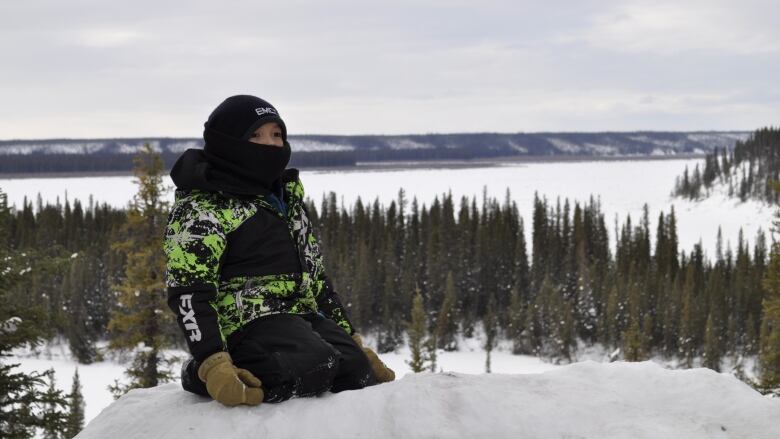
Paulina Roche says she's never seen so many fishing huts out on Great Bear Lake.
"I see people going there and making smoke in their little fish huts and they go ice fishing all day," said the CEO of the Dln Got'n government.
"People go there every day."
In Deline, N.W.T., residents areout on the land more, and harvesting and trapping more, said Roche. The young people are getting into it, too. Roche's own songoes out with his friends in a caravan of skidoos.
"He's out every day. He's either getting wood, harvesting, or he's going traditional hunting," said Roche.
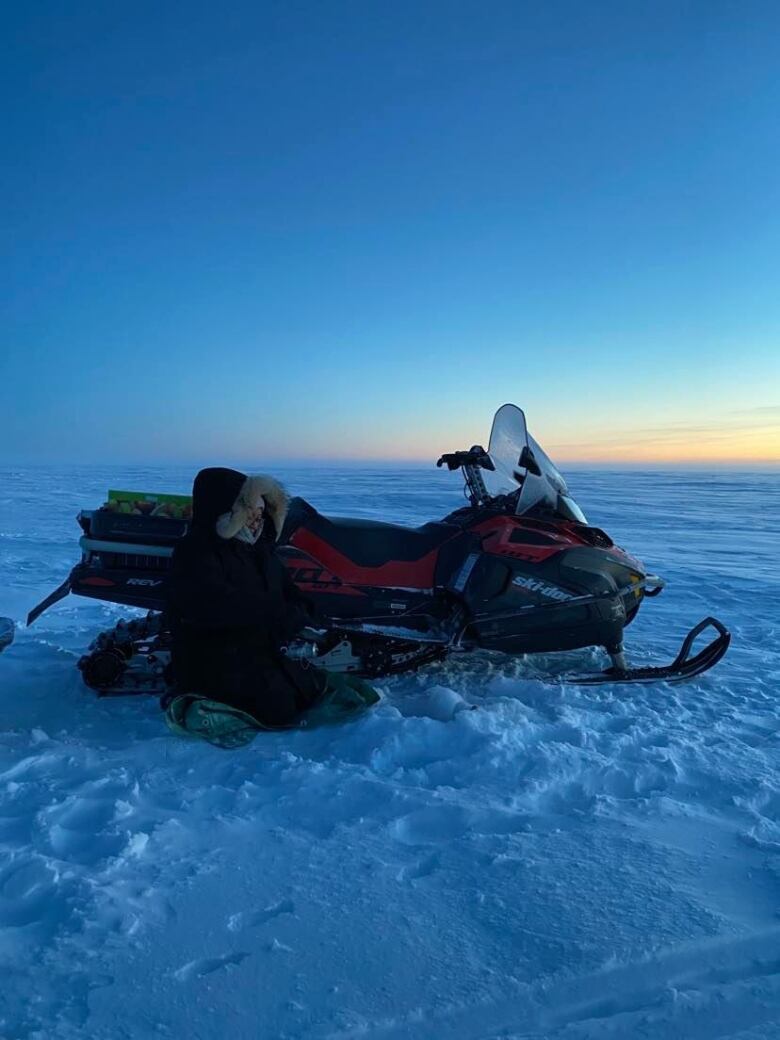
With hockey tournaments, bingosand other large gatherings cancelled due to COVID-19, and out-of-territory travel strongly discouraged, people in Northwest Territories communities have spent more time over the last year with their families, helping out in their communities and going out on the land.
In Deline, young people have been chopping wood and catching fish for elders, said Roche, and community members have been cooking bannock for elders and delivering it to them.
Thanks to federal and territorial COVID-19 relief spending, the Dln Got'n government was able to help with the high costs of food and gas so people could get out and hunt.
"We all stayed here and we did a lot of things in the community, as a community," said Roche. For her and others, these adaptations were ray of light in what has been a largely dark and isolating year.
"There is a lot of positive that came out of the COVID," said Roche, remarking on how people stopped travelling, or returned to Deline from N.W.T.'s larger centres.
"What happened in the community is that a lot of people went out on the land with their families. You're learning about the value of family."
'We have to do that to protect our people'
When the pandemic took hold in March 2020, the Dln Got'n government jumped into action.
It quickly passed a COVID-19 response law and implemented a slate of restrictions, said Roche, including an alcohol ban and a curfew. She said the government hired extra workers to sanitize buildings, ensure people were following physical distancing rules, and monitor who was entering the community by air, water and winter road.
"It was like, holy, this can wipe up our elders if somebody caught it, right? So we really wanted to put in the tough restriction to make sure that nothing comes into this community," she said.
"We have to do that to protect our people."
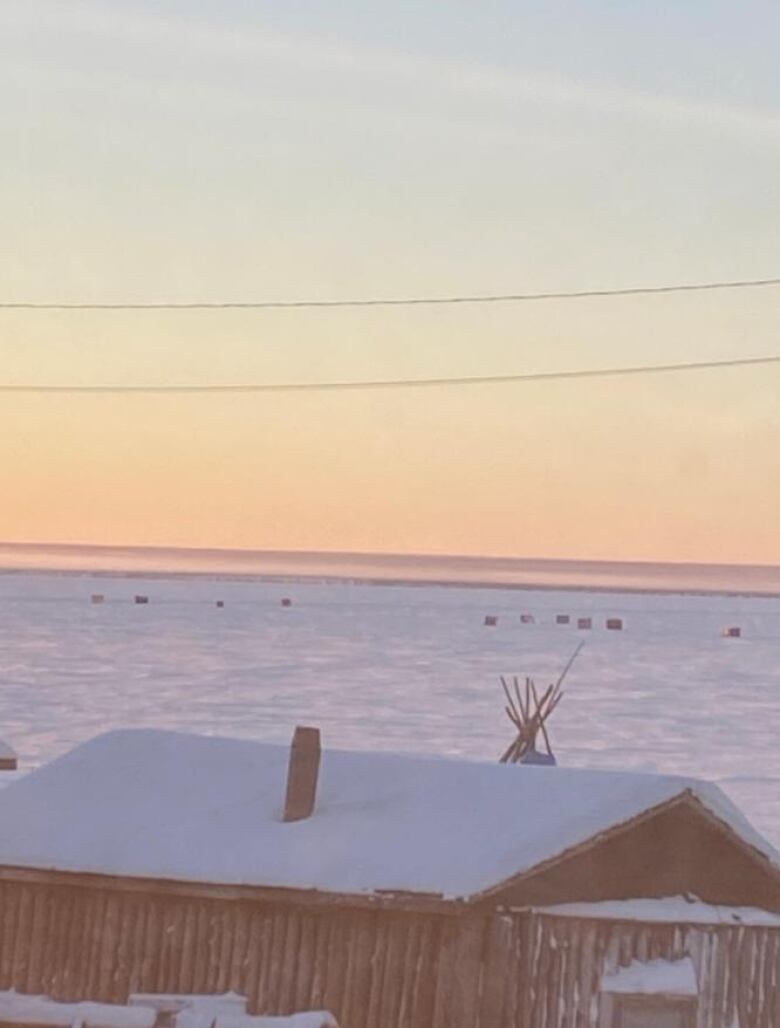
The changes have been hard, but they've also brought about some good.
In Roche's view, less work-related travel and more time in the office means her organization is more productive. It also means extra time with family and doing activities people love.
"For me, I love fishing," said Roche. "I go fishing all the time."
Remembering past outbreaks
For Elder Mary Teya in Fort McPherson, N.W.T., the pandemic has meant spending a lot of time at home, which, admittedly, can be lonely and frustrating.
"People in McPherson like to get together and have a lot of fun," she said.
Now, said 82-year-old Teya, the elders talk to each other on the phone.
"We try to communicate as much as we can, and talk about going through COVID," she said.
In Fort McPherson, too, said Teya, families have been going out on the land spending time at Midway Lake, the site of the Midway Lake Music Festival, about 30 kilometres from town.
"If they got caribou, they work with their caribou up there. Skin, cut them up. Some of them, they make dry meat," she said.
Like in Deline, government COVID-19 relief money was available in Fort McPherson for gas and groceries.
"People really enjoy being out on the land, so they really appreciate the help that they get during this time," said Teya.
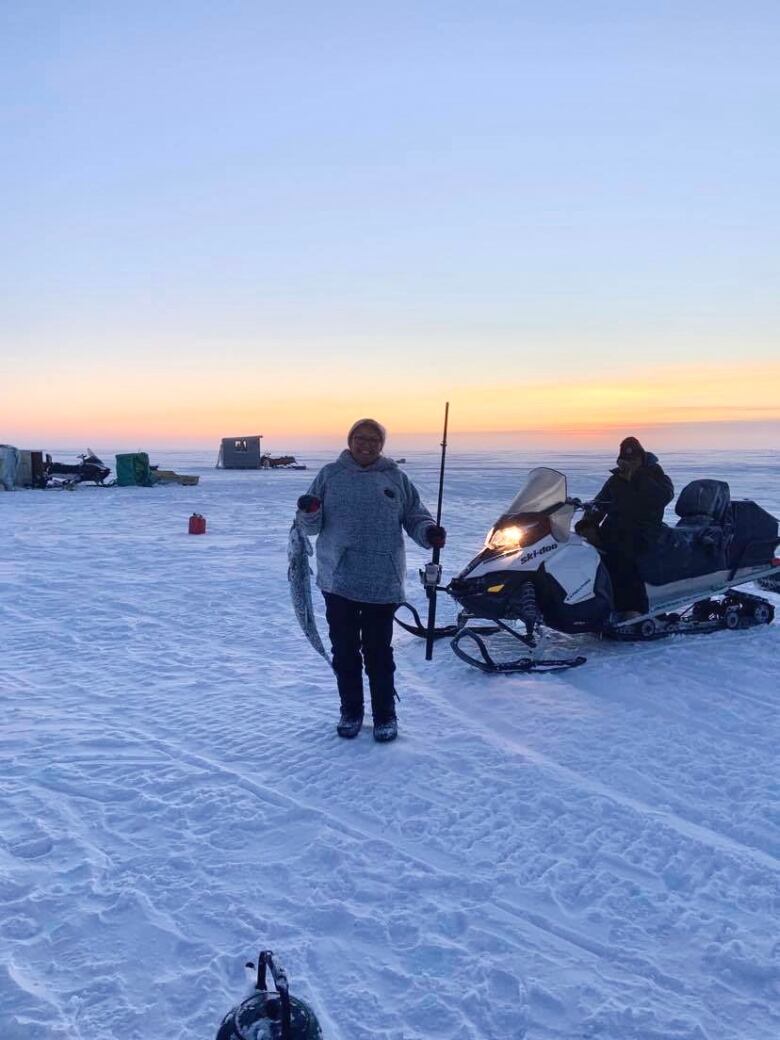
The COVID-19 pandemic isn't Teya's first experience with a disease outbreak. She said when she was in residential school in Aklavik, N.W.T., measleshad many students bed-ridden.
"There was a quarantine. We couldn't go out, and a lot of the students were sick and in bed, and a few were not sick and they took care of things," said Teya.
"We talk a lot about it, me and a few other elders here in the community, and remembering the time when all the people in Aklavik were down with measles too and everybody was quarantined."
What happened in the community is that a lot of people went out on the land with their families.- Paulina Roche, CEO of the Deline Got'ine government
Teya knows what it takes to make the best of hard times.
"We all have to try to look on the good side of things with hopes of things getting better," she said.
"If, good Lord willing and I survive this, I really believe that that can happen, and so that's why I said we need to look on the good side of everything and be a part of what we can be a part of in the community."
'You can't sit around'
In Colville Lake, the pandemic has been an exercise in preparedness.
The community used COVID-19 money to help get supplies, like generators and freezers, out to area camps, said Chief Wilbert Kochon of Behdzi AhdaFirst Nation. The idea is that if the virus enters his community, people can take off to the camps to avoid getting sick.
"All the camps are pretty well prepared," said Kochon. "People can stay in there for a couple of weeks if they have to."
Kochon sees downsides and upsides to people spending more time in the community for lack of travel opportunities.
It's not good for people to be sitting around, killing time, he said. On the plus side, people are spending more time with their families, and spending more money inside the N.W.T.
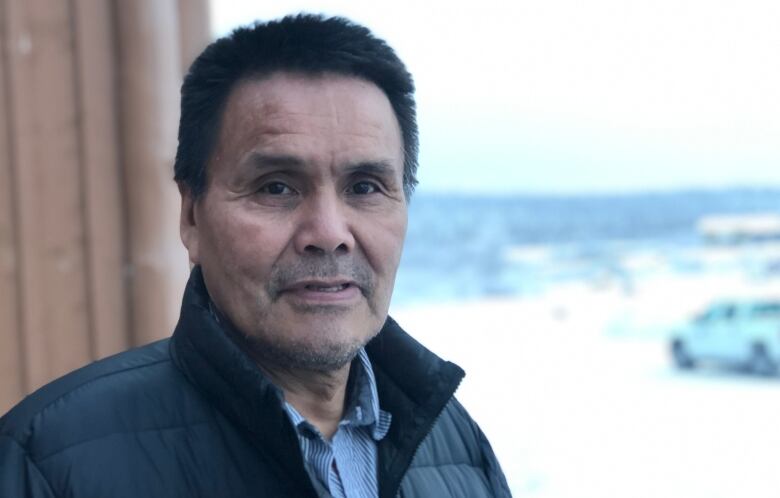
A takeaway from Kochon's pandemic year: "You have to adapt and make good of it otherwise you'll be just sad," he said, adding, "you can't sit around."
Finding ways to keep people busy has been the mission of K'asho Got'n Chief Danny Masuzumi in Fort Good Hope. Otherwise, he said, people get stressed out.
The community got some federal funding to support people hauling wood for elders, as well as going out on the land to hunt caribou, moose and fish, said Masuzumi.
He said it's about giving people the chance to "make a little money for themselves, and also provide food for elders and so on. The people that really can't afford to go to the store and buy food."
The pandemic has forced Masuzumi's government to be resourceful.
"You really have to look within your community andlook at all the resources you have in the community and try to give them opportunities," he said. "Try to keep everybody busy."
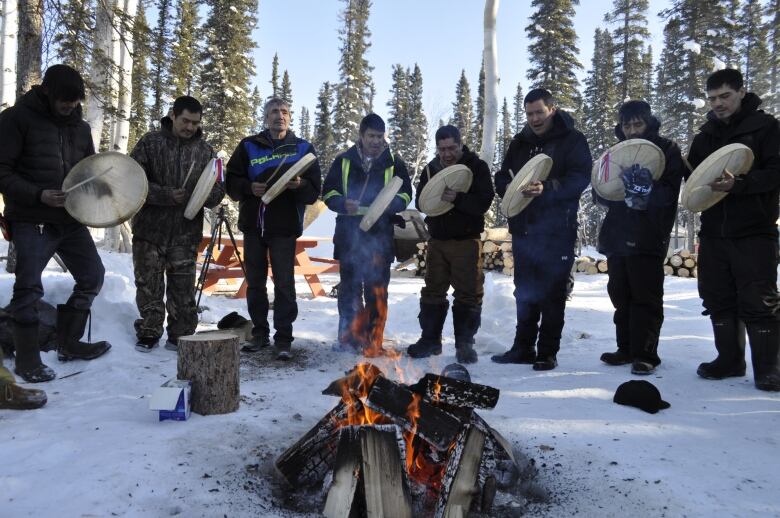












_(720p).jpg)


 OFFICIAL HD MUSIC VIDEO.jpg)
.jpg)



























































































